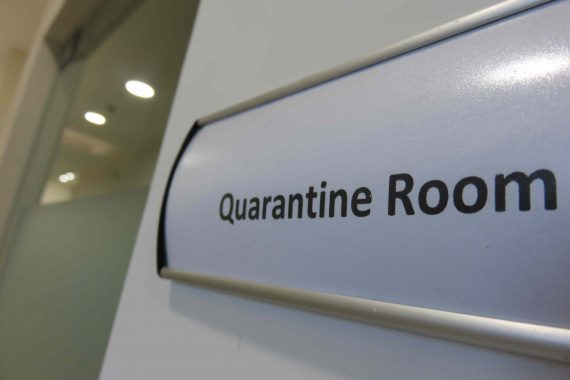GP practices defy national stance to suspend online booking due to Covid-19

GP practices around the country have suspended online appointment booking due to coronavirus (Covid-19), Pulse has learned.
Since last year, GP practices are contractually required to offer a quarter of their appointments online but the BMA has urged NHS England to temporarily lift the requirement to ensure patients are triaged for coronavirus before presenting at practices.
NHS England has refused the BMA’s request, saying it does not believe national suspension is a ‘proportionate response’ currently.
So unless local agreements are in place, GP practices are risking contract breach notices in their attempts to keep their patients safe from the spread of coronavirus, one GP representative warned.
Despite this, Pulse has found multiple examples of practices around the country – in Sheffield, London, Bristol, Wakefield, Northampton, and Stratford-Upon-Avon – that have told patients on their websites that they have temporarily suspended online booking so they can properly triage patients.
The Crookes Practice in Sheffield sent out a notification to patients on Tuesday (18 February) saying that online booking would be temporarily suspended ‘for the health and safety of everyone’.
Speaking with Pulse, business manager Kate Carr said they were not the only practice in the city to take this step and others had put the measures in place earlier.
‘We felt it was better to be safe and try to minimise the risk of what has happened in other areas, especially on the back of the UK Government officially declaring the coronavirus outbreak “serious and imminent threat to public health” on 10 February and subsequent information from the BMA.’
She added: ‘Hopefully our message was clear that this is a temporary solution to reduce the risk of spreading the virus and we will continue to seek advice and guidance and act in the best interest of our patients and staff.’
NHS Sheffield CCG would not comment, passing all queries about coronavirus to the Department of Health and Social Care.
NHS England has told BMA that LMCs will have to lobby CCGs locally where there are concerns about spread of the virus, to obtain permission to switch off booking.
A spokesperson for Londonwide LMCs said they had heard of one case of a London practice suspending online bookings into its extended hours service because the booking platform does not require patients to give a reason for wanting the appointment.
‘Our advice to any practice considering ceasing to fulfil a contractual requirement is to contact their commissioner and get written agreement beforehand, which their LMC can support them with if needed.’
Dr Robert Morley, executive secretary at Birmingham LMC, said practices who unilaterally decide to suspend online booking could be issued with a contractual breach notice.
He added that NHS England’s position that this was up to local agreement was ‘unacceptable’.
‘Online booking is a national contractual requirement. Coronavirus is, we’re told, a national public health emergency. It’s clear that practices do not have the facilities or equipment to safely manage any suspected cases.’
He added: ‘Online booking is a specific risk, particularly for inappropriate diversion of cases to general practice by NHS 111, as we’re hearing from across the country.
‘It’s simply not good enough to expect practices and LMCs to have to argue the case with their CCG locally, when the inevitable response from them is going to be that they can’t alter national contractual requirements.’
BMA GP Committee chair Dr Richard Vautrey said: ‘The latest guidance provides wording for online booking systems to highlight the process for suspect Covid-19 cases, encouraging patients to call NHS 111 rather than attend their practice. This has gone to online booking providers and we would advise that if practices use their own online booking systems that they replicate this wording.
‘We continue to be concerned about the potential risk to staff in practices with the use of online services without triage and will continue to push for suspension as a local option where appropriate.’
Pulse October survey
Take our July 2025 survey to potentially win £1.000 worth of tokens










